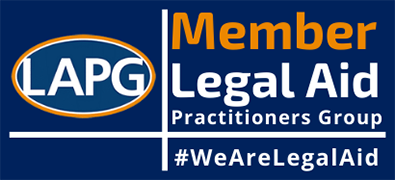
Divorce and Finance lawyer Vincent Ibekwe shares his thoughts on the rise of Conduct in Financial Remedy Proceedings being raised more frequently.
Conduct is increasingly being raised by one or both parties in financial remedy proceedings. This could be a shift in focus following the introduction of the no-fault divorce regime under the Divorce, Dissolution and Separation Act 2020. Under this regime, parties are no longer required to assign blames in the divorce petition; it is sufficient to state that the marriage has irretrievably broken down, without fault-finding. As a result, there may be a tendency for personal grievances, which can no longer be aired in the divorce process itself, to be redirected into the financial proceedings. This often takes the form of conduct allegations. This not only risks leaving a bitter aftertaste but can also lead to adverse cost consequences, ultimately hindering rather than helping the resolution of financial issues.
Form E, one of the most important and earliest documents completed by both parties, refers to conduct in section 4.4. This section states that “Bad behaviour or conduct by the other party will only be taken into account in very exceptional circumstances when deciding how assets should be shared after divorce/dissolution.” However, the phrase “very exceptional circumstances” is somewhat ambiguous and offers limited practical guidance. It is tempting for parties, and understandably so, to throw everything in rather than risk omitting something that may turn out to be important.
In settling a couple’s finances following divorce, the court is guided by a range of factors outlined in Section 25 of the Matrimonial Causes Act 1973[1], commonly referred to as the Section 25 factors. These factors include the income, earning capacity, property, and financial needs of each party, as well as the standard of living during the marriage, the age of the parties, and any disabilities. Among these considerations, conduct[2] is one element that the court may take into account. However, it is only relevant where the conduct is so serious that it would be inequitable to disregard it in the context of financial provision. Conduct is limited to behaviour that is particularly serious or exceptional, and it is not a vehicle for revisiting past grievances, regardless of how strongly either party feels about them.
Conducts that the Court may Consider
Notwithstanding the foregoing, there are instances in which conduct will be considered relevant to a financial remedies proceeding.
Personal Conduct
The threshold for establishing that an alleged personal conduct meets the criteria to be considered relevant in financial proceedings is high. Cases that meet the required threshold for conduct are rare. The behaviour in question must be not only gross but also obvious and of such seriousness that it would cause someone who hears it to gasp. Examples might include instances of physical violence that have had a direct impact on a party’s ability to work or earn a living. In the case of H v H (2025), the husband was convicted of attempted murder for a knife attack on the wife. The attack left the wife unable to continue her career as a police officer. The Court held that it was fair in these circumstances to award the wife a greater share of the assets.
Financial Misconduct
This is the most common. In this type, a party may have dissipated assets. Various misconducts can come under this umbrella: reckless investments, gambling, litigation misconduct, extravagant and expensive spending. The reasoning is that it would be unfair for a party who has deliberately dissipated assets to receive a greater share of the remaining assets than they might have been entitled to if they had not squandered those assets. In such cases, the court may adopt the view that the assets are still effectively intact. This is where the concept of “add-back” comes into play. Although the spent assets are, in reality, gone, the court can notionally add them back, treating them as if they still exist.
Conduct in Financial Remedy Proceedings
It can be difficult to determine whether a particular act meets the high threshold required for misconduct, or when it is appropriate to raise such issues. Striking the right balance is not always easy. While it is generally advisable to raise conduct concerns as early as possible, typically within the Form E, there is a caution against listing every instance of past behaviour. Doing so may unnecessarily escalate tensions between the parties and hinder constructive negotiation.
[1] The Act
[2] s 25(2)(g) of the Act
Need some advice? Get in touch today
"*" indicates required fields
The information submitted here is used and stored for the purpose of replying to the enquiry. For more information on how we process data please visit our Privacy Policy.









